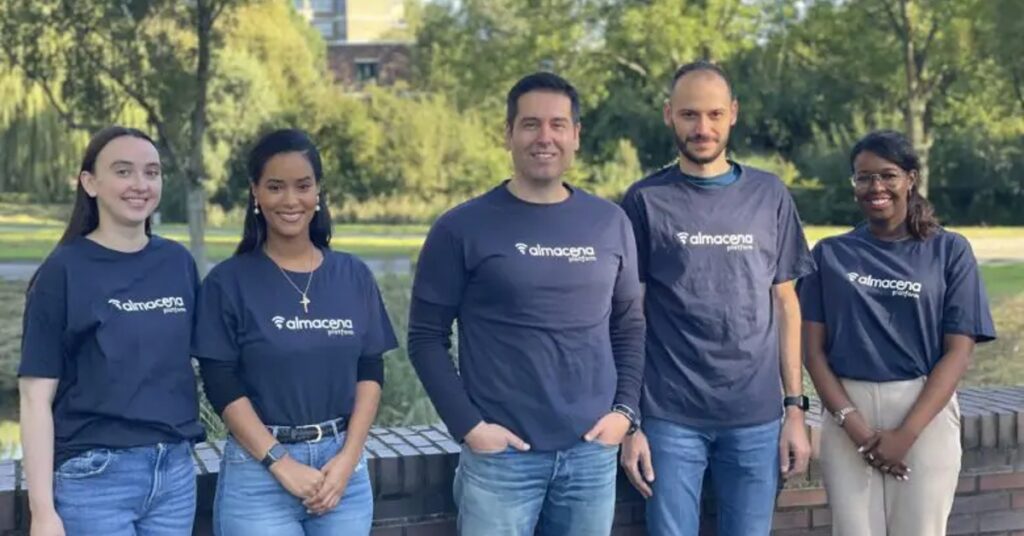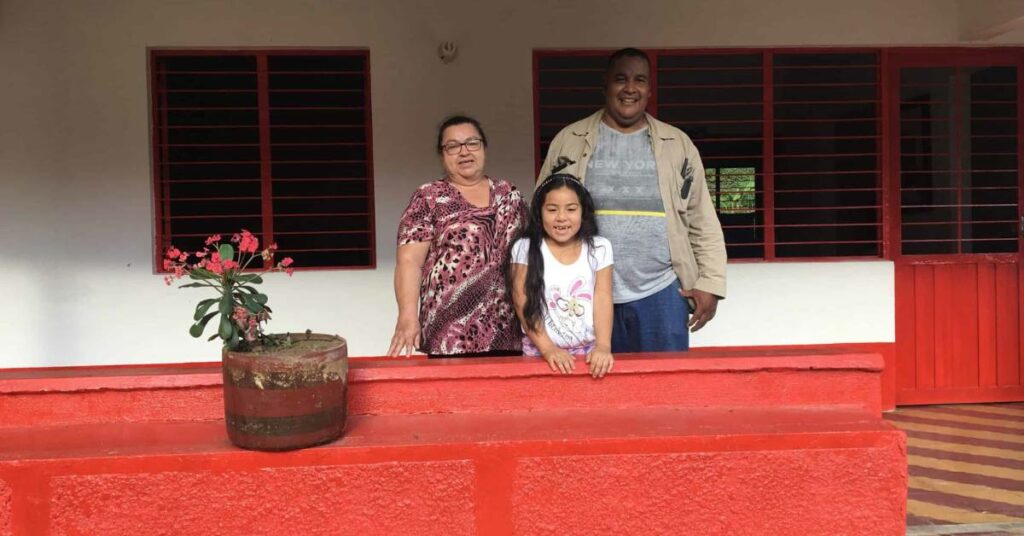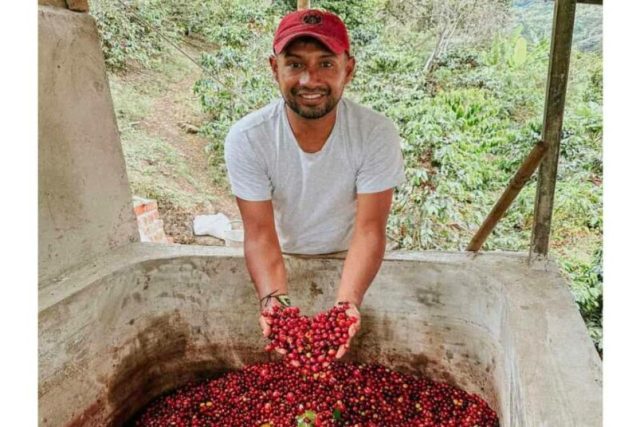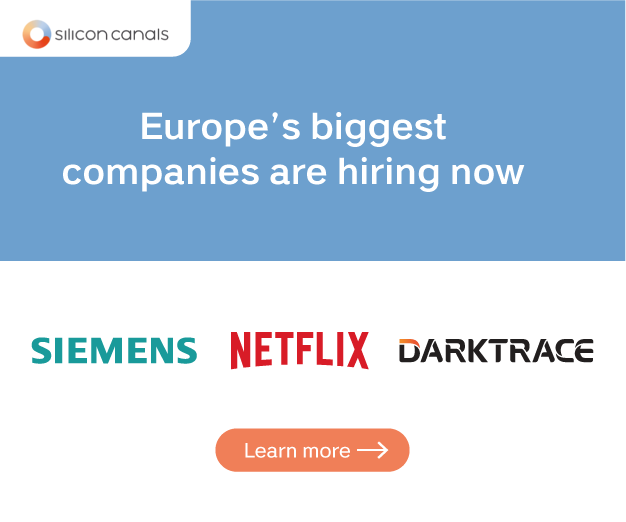What does a business need to grow internationally? Most people will say finance but Dimo Yanchev disagrees.
In 2019, Yanchev co-founded Almacena Platform with Karl Robijns as a debt crowdfunding platform to help origin producers in Africa and Latin America.
The idea was this platform will be the gateway for origin producers to access cheap funding from investors in the European Union but they soon realised that finance is just one of the elements needed to grow business internationally.
What else is needed? Origin producers around the world also need access to service partners, buyers, technology, and know-how to unlock opportunities for the agricultural producers.
This understanding paved the way for Almacena to transform from a debt crowdfunding platform to an end-to-end solution.
From banking to Almacen
Coming from a family of farmers, Yanchev says he had first-hand insight into the hard work, dedication, and sacrifice required to operate a farm.
During his international banking career in the areas of trade and agricultural commodity finance, he once again saw the limitations for agri producers around the world.
“It is not a surprise that only about 5 per cent of the producers sell to international buyers,” explains Yanchev.
He adds, “Most are limited to local aggregators, selling for little the production.”
Yanchev saw a clear lack of solution that supported producers to become international businesses and reach global buyers and to build one, he left his two decades long banking career.
He says, “The timing was right with the advance of technologies, wider availability of internet and hence connectivity even in remote areas and the global push for more transparency and traceability in the supply chain.”
They called the solution, Almacena, which comes from Spanish Almacen and means storehouse or warehouse.
“We liked it [Almacena] because it is relevant to our industry and what we offer – a storehouse of services. And it starts with A like Amazon and Alibaba whose models we incorporate,” says Yanchev.
A complex problem

Yanchev leads Almacena as co-founder and CEO while Robijns, a leading commodities trader for some of the top investment banks and hedge funds, is now Chairman of the Board.
Juri Stoynov, who has a Ph.D in computer science, leads technology development through Almacena Bulgaria EOOD. Spain-based Inigo Aresti manages business development and internal processes.
The quartet argue that lack of finance and understanding of how international trade works limits producers from becoming exporters.
“They [Producers] sell to local intermediaries or aggregators and often remain an anonymous part of the supply chain,” explains Yanchev, adding, “end-market buyers are not really set-up to buy from origin producers.”
This leads to producers often being forced to sell to local intermediaries or aggregators and often become an anonymous part of the supply chain.
It is not just the producers but the team behind Almacena argue that even end-market buyers are not set up to buy from origin producers.
Yanchev explains, “It is risky to buy high-value commodities online, even if you know who the seller is, given the complexities of moving physical products across continents.”
An end-to-end solution
The first step in solving this challenge faced by origin producers is to offer a platform that helps them skip the local middlemen and reach the international traders by providing them with finance and access to services needed to deliver the coffee to the port.
In other words, Almacena is a platform that helps producers not only tap into finance but also handles complexities such as insurance, logistics, hedging, and digital tools to manage the deal execution and service partners.
For a first-time exporter, the platform offers a trade dashboard tool and a dedicated support team to help them deliver.
Almacena helps producers comply with all buyer requirements including deforestation data and ESG reporting while traders get to access new sets of suppliers directly and de-risk operations with the help of real-time data and local deal support.
“In the end, it is a better trade for both the sellers and the buyers in terms of profitability and risk management,” Yanchev tells me.
Another area where Almacena helps coffee producers in East Africa and Latin America is with traceability and transparency.
As businesses focus on responsible sourcing, reduced carbon footprint, use of resources, regenerative agriculture, income increase for the farmers, Yanchev says none of these can be tracked or proven without independent data collection.
Through its traceable and transparent supply chain, coffee producers are not only able to become sustainable but also further push digitisation in the coffee industry.
A bridge funding on Seedblink

Almacena is essentially the Alibaba for coffee trading and its mission is to empower coffee producers in three continents.
In order to achieve this mission, Almacena raised €3.5M in 2022 that helped the Amstelveen-based startup build the technology’s MVP and launch globally.
Yanchev says they currently have 1,997 active organisations in Almacena, including sellers, buyers, and service companies.
The platform is home to 10 origin countries across 3 continents and buyers from 13 countries including EU, Middle East, US, and Brazil.
Now, the startup is raising up to €700,000 in the form of convertible notes on SeedBlink.
This new round, Yanchev says, will act as a bridge to their Series A round planned for the end of 2024 while also helping them expand in Latin America.
“We have a successful operation in Colombia and are looking to establish a presence in Brazil and Mexico,” says Yanchev.
The Dutch startup currently has a pipeline of $10M in intra South American flows and has started financing first deals in the USA from Latin America with a goal to grow further.
With over 55 per cent of the Latin American coffee being exported to North America, Almacena sees the bridge round help triple the volume and position itself on the Latin America and US trade flow.
Professionalise Coffee Growing
For a lot of us, the first sip of coffee in the morning is a make or break event. With coffee consumption growing globally and supply failing to keep up, there is real need for platforms like Almacena.
Yanchev says they have seen production decrease in some of their main origins in markets like Uganda due to bad weather and changes in weather patterns.
However, he also sees Africa offering a lot of room for increased productivity made possible by better agricultural practices and increased use of fertilisers.
“Countries like Ethiopia and Uganda have also been running rejuvenation programs in the past years that will add new capacity in the near future,” he quips.
Apart from adverse effects of climate change, Yanchev sees educating farmers on best practices to professionalise coffee growing and providing tools to respond to weather changes to be a challenge.
Can the coffee industry become circular? Yanchev cites initiatives like regenerative agriculture projects with forest coffee plantations in Ethiopia, organic fertilisers in Rwanda, pellets from the biomass for energy at the coffee processing plant as the first step towards circularity.
“Circular economy approach in coffee is both possible and economically viable,” he affirms.
In 2023, Almacena expanded with first deals in South America and added Brazil, Honduras, and Colombia as origins.
Yanchev says they plan to continue the expansion into Central and South American origins and finance the exports to the end market.
He also sees Almacena growing its volume 7x year-over-year in coffee while also adding new verticals by extending their services to the East African tea sector.
At the core, Yanchev and Almacena’s leadership team are focused on unlocking the trading potential of origin producers and buyers and creating trade opportunities in coffee globally.




The Most Read
Сryptocurrencies
Bitcoin and Altcoins Trading Near Make-or-Break Levels
Financial crimes
Thieves targeted crypto execs and threatened their families in wide-ranging scheme
Financial crimes
Visa Warning: Hackers Ramp Up Card Stealing Attacks At Gas Stations
News
Capitalism is having an identity crisis – but it is still the best system
Uncategorized
The 73-year-old Vietnamese refugee is responsible for bringing Sriracha to American consumers
Uncategorized
Electric Truckmaker Rivian, Backed By Amazon, Ford, Raises Whopping $1.3 Billion